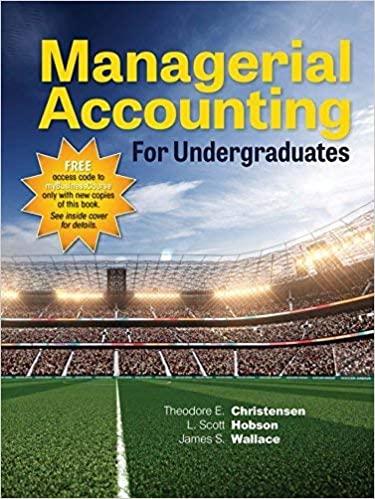Name Date Principles of Finance Chapters 1 & 2 Week 6 11. Which of the following statements is correct? a. A warrant is basically a long-term option that enables the holder to sell common stock back to the firm at an agreed upon price, at a specified time in the future. b. Generally, warrants are distributed along with preferred stock in order to make the preferred stock less risky. c. If a company issuing coupon paying debt wanted to reduce the cash outflows associated with the coupon payments, it could issue warrants with the debt to accomplish this. d. One of the disadvantages of warrants to the issuing firm is that they can be detachable and can be traded separately from the debt with which they are issued. e. Warrants are attractive to investors because when they are issued with stock, investors receive dividends on the warrants they own as well as on the underlying stock. 12. A firm plans to sell $100 million of 20-year bonds to raise capital for expansion. Which of the following provisions, if it were included in the bond's indenture, would tend to raise the coupon interest rate over what it would be if the provision were not included? a. A call provision under which the firm may call the bonds for redemption after 5 years. b. Provision for a sinking fund, where a set percentage of the bonds must be called for redemption at par each year. c. A restrictive covenant which states that the firm's current ratio must always exceed 2.0. d. A pledge of real property as security for the bonds. c. A provision under which the bondholders may, at their option, turn the bond in to the company and receive the bond's face value; that is, the bond is redeemable at par at the holder's option. 13. Which of the following statements is false? a. When a corporation's shares are owned by a few individuals who are associated with or are the firm's management, we say that the firm is "closely held." b. A publicly owned corporation is simply a company whose shares are held by the investing public, which may include other corporations and institutions as well as individuals. c. Going public establishes a true market value for the firm and ensures that a liquid market will always exist for the firm's shares. d. When stock in a closely held corporation is offered to the public for the first time the transaction is called "going public" and the market for such stock is called the new issue market. 14. Which of the following events would make it more likely that a company would choose to call its outstanding callable bonds? a. A reduction in market interest rates. b. The company's bonds are downgraded. c. An increase in the call premium. d. Answers a and b are both correct. c. Answers a, b, and care all correct 15. Of the following provisions that might be found in a bond indenture, which would tend to reduce the coupon interest rate on the bond in question? a. A subordination clause in a debenture. b. A call provision. c. A convertible feature. d. Having relatively few restrictive covenants







